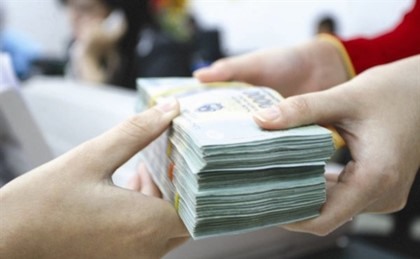Consumer loans rise nearly 30% by end May
 |
| Consumer lending by end May rose 29.7 per cent against the end of 2016. - Photo tinnhanhchungkhoan.vn |
Of the total consumer loans, home renovation loans and home purchase loans accounted for 52.8 per cent, compared with 49 per cent in the end of 2016.
As per the NFSC’s report, credit growth of the entire banking system was positive, reaching 6.8 per cent in May, compared to 5.7 per cent in the same period in 2016. In particular, the lending terms have changed towards fewer medium-term and long-term loans. The proportion of short-term loans was estimated at 45.4 per cent, against 44.9 per cent in late 2016. Meanwhile, the proportion of medium- and long-term loans fell to 54.6 per cent, against 55.1 per cent.
Lending in Vietnamese dong accounted for nearly 92 per cent, while lending in foreign currencies fell slightly to 8.2 per cent of the total lending from 8.4 per cent in late 2016.
At the end of the first quarter of 2017, the banking sector continued to be the economy’s main source of capital supply, accounting for nearly 60 per cent of the total capital supplied via the financial market.
The NFSC reported that as of now, liquidity troubles have declined. The ratio of loan to deposit (LDR) of the entire banking system was 87 per cent as of May, slightly lower than earlier. Inter-bank interest rates have also fallen to 4-4.2 per cent per year from the previous 5 per cent. The State Bank of Viet Nam withdrew VND28 trillion (US$1.22 billion) in May.
According to the NFSC, the positive liquidity status is because of a rapid rise in State Treasury deposits as budget disbursement remains slow. As of late April, State Treasury deposits reached VND122 trillion, up 28.4 per cent against the beginning of the year.
What the stars mean:
★ Poor ★ ★ Promising ★★★ Good ★★★★ Very good ★★★★★ Exceptional
Latest News
More News
- Private capital funds as cornerstone of IFC plans (February 20, 2026 | 14:38)
- Priorities for building credibility and momentum within Vietnamese IFCs (February 20, 2026 | 14:29)
- How Hong Kong can bridge critical financial centre gaps (February 20, 2026 | 14:22)
- All global experiences useful for Vietnam’s international financial hub (February 20, 2026 | 14:16)
- Raised ties reaffirm strategic trust (February 20, 2026 | 14:06)
- Sustained growth can translate into income gains (February 19, 2026 | 18:55)
- The vision to maintain a stable monetary policy (February 19, 2026 | 08:50)
- Banking sector faces data governance hurdles in AI transition (February 19, 2026 | 08:00)
- AI leading to shift in banking roles (February 18, 2026 | 19:54)
- Digital banking enters season of transformation (February 16, 2026 | 09:00)















 Mobile Version
Mobile Version